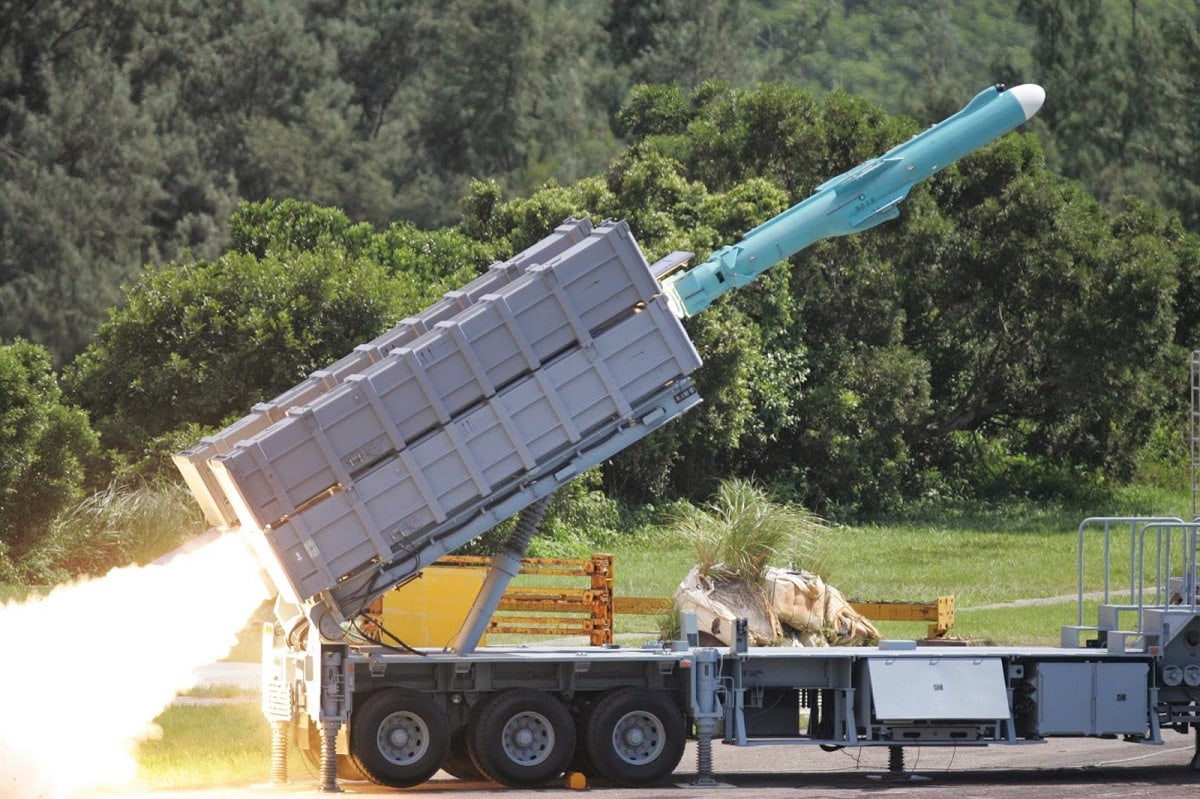James Holmes

To what end? That’s a timeless question military folk and their political masters should ask themselves before crowing about their ability to wield this or that weapon to do this or that in wartime. A refresher on the political uses of arms may be in order in the case of Taiwan.
Over at The War Zone, Emma Helfrich reports that You Si Kun, the president of Taiwan’s Legislative Yuan, or elected assembly, gave a speech earlier this month touting the indigenously manufactured Yun Feng supersonic cruise missile. According to Helfrich, You proclaimed that an extended-range variant of the missile “can already hit Beijing, and Taiwan has the ability to attack Beijing.”
To what end?
Would menacing Beijing deter Xi Jinping & Co. from aggression, or help Taiwan defeat them if not? Doubtful. International-relations wonks observe that one antagonist can try to deter another in two general ways. One, it can try to convince the opponent’s leadership it can’t get its way through the use of force. This is “deterrence by denial” in IR-speak. Or two, the contender assaying deterrence can try to convince hostile leaders that after-the-fact retaliation against aggression will exact such grave costs that the goal isn’t worth it. This is “deterrence by punishment.” Both modes of deterrence bank on a rational adversary’s standing down if its cause is hopeless or unaffordable.
Either way, deterrence demands that a competitor field sufficient capability—in this case precision armaments—to make good on its deterrent threats. It must amass capability sufficient to deny the aggressor its aims up front, or to mete out unbearable punishment afterward. But while Taiwanese officialdom contends that the island’s defense industry will now “mass produce” the Yun Feng, this seems to mean that Taiwanese rocketeers will operate a total of twenty missiles embarked in ten truck-mounted launchers. No matter how precise and destructive each Yun Feng, twenty rounds doesn’t amount to much volume of fire against a sprawling metropolis like Beijing—let alone a country like China, with its continental proportions and dispersed martial infrastructure.
The new missiles could be put to far better use. China’s People’s Liberation Army (PLA) must launch a successful cross-strait amphibious invasion to bring Taiwan under mainland rule. This is what the Taiwanese armed forces must defeat. It’s hard to see how what would amount to revenge strikes against the Chinese capital city would either deny Xi his aims or convince the Chinese despot that conquering the island isn’t worth absorbing damage from counterstrikes. Xi has promised, loudly and often, to impose Chinese sovereignty on the island. He has staked his personal prestige as well as national dignity on it. He is all in. He’s not likely to relent because twenty missiles might lash out at the capital.
In fact, Xi might welcome such punitive attacks as an opportunity to whip up morale among the Chinese people. An incensed populace is a warlike populace.
Now, elsewhere in his remarks, You Si Kun did sound some useful themes. He observed that maritime geography will work in Taiwan’s favor in a cross-strait war. True enough. To triumph the PLA would need to ferry a massive expeditionary force across the Taiwan Strait; execute an opposed amphibious landing, among the most forbidding military operations in the book; and fight its way across a craggy island inhabited by some 23 million people who do not relish Chinese Communist rule. None of this is easy. In fact, learned commentators note that landing on Taiwan would be an enterprise roughly comparable in scope and hardship to landing in Nazi-occupied Normandy in 1944.
This is the discomfiting image Taiwan’s defenders must cast into Chinese minds.
If Taipei wants to give Xi Jinping pause, it must accumulate capabilities that make a cross-strait offensive a daunting if not hopeless prospect. It must deter by denial, gearing weapons acquisitions, tactics, and strategy to that all-important goal. If Taiwanese commanders want to put Yun Feng strikes to effective use, far better to target port infrastructure needed to support a PLA invasion fleet—piers, fuel facilities, ammunition supplies, and so forth—than to waste scarce rounds on such frivolities as attacking mainland cities. Or, given sufficient warning of an assault, Taiwan’s defenders could go after amphibious transports while they’re still at their moorings and stationary.
Ships that never get to sea deliver few soldiers to landing beaches.
One hopes You Si Kun’s words were a rhetorical flourish that doesn’t reflect the state of military thinking in Taipei. Taiwan is the weaker competitor vis-à-vis China. To prevail it must make every martial resource count. The prospect of seeing a few Yun Feng missiles lobbed into Beijing would neither deter nor defeat a PLA onslaught. Deploying Yun Fengs to help pummel an invasion fleet could do both.
No comments:
Post a Comment